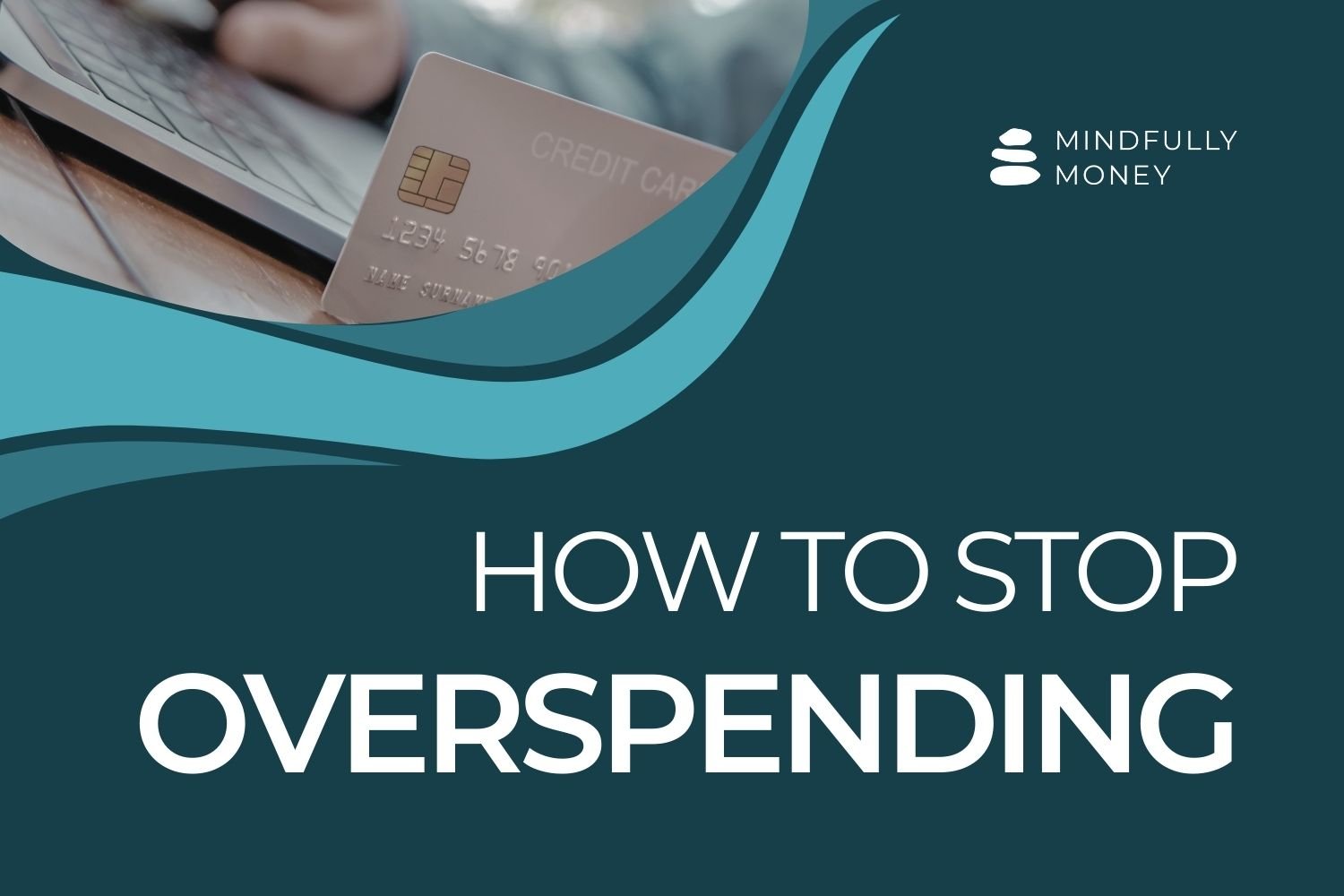How to Save Money During the Holidays
The holidays are a time of festivity, giving, and celebration, and it’s easy to get carried away. The normal rules don’t seem to apply during the holidays, and before you know it, you’ve spent too much money. Then the credit card bills come due and all of a sudden you find yourself wondering if it was all worth it.
Even the most frugal people find themselves getting caught up in the excitement, sales, deals, and general merrymaking.
According to a CNBC article, 30% of Americans said that they overspent during the 2021 holiday season. 36% of consumers said they went into debt, with the average amount of debt accumulated during November and December totalling over $1000.
(This article focuses on holidays in November and December, but the same principles can be applied to any holiday that you celebrate at any time of the year.)
I get it. I’m as guilty of this as anyone else. I spend most of the year being quite responsible with money and then the holiday season hits and BAM! the spending bug hits me and suddenly I’m spending way too much time looking online at all the things I can buy.
On any weekend in November, you’ll find me looking for the best deals I can find on anything I want or need just because I want to get the best price. And I’m pretty proud of myself too. For example, yesterday I found that my curly hair products were available in a 2-pack at Target in a set for $9.99, and it was 25% off. Purchased separately, each one of those costs $7.99.
I get totally caught up in finding good sales and shopping for things that will bring joy to my kids and loved ones.
But that doesn’t have to mean going into debt. It’s possible to enjoy the excitement of holiday shopping without a pile of credit card bills you can’t pay.
The secret is to plan ahead. If you expect that your spending will be significantly higher in the last few months of the year, then you should account for that in your budget. So when it comes to the holidays, you know that you will be able to spend what you want (within reason) without worrying about how you’ll pay for it.
Since this blog post is coming out in November, it’s a little too late to plan ahead for this holiday season, and I’ll give you some tips to help you save money during the holidays below. But before we get into the “spending less” part, I want to tell you how you can plan ahead for next year (or any time of year that you might be celebrating a major holiday).
How to Plan Ahead for Holiday Celebrations
Figure out approximately how much you spent during the previous year’s celebrations.
Divide that amount by 12 (or the number of months you have until the next holiday season).
Create a savings account or subaccount specifically for holidays.
Set up an automatic transfer of the amount from Step 2 from your checking account into the holiday savings account.
Remember to include this transfer in your budget so that you have enough money to cover it each month.
Done! No more debt during the holidays.
(In fact, you can use this process to save up for any expenses that don’t occur monthly, such as home repair and maintenance, birthday gifts, travel, or medical expenses.)
How to Save Money During the Holidays
If your budget is tight and you haven’t saved in advance to cover extra holiday costs, here are some things you can do to keep yourself from going into debt.
1. Figure out what is most important to you and prioritize those things.
This is by far the most important thing you should be doing for holidays or any other time of year. When most people try to save money (by spending less), they immediately think they have to give up everything that is fun and enjoyable in life. But that is neither effective, nor sustainable.
Instead, figure out what things you and your family enjoy the most. Identify which traditions and experiences are most important to you and your family. Keep those as part of your holiday celebrations!
Then figure out how to cut or reduce spending on everything else. Look at all the things you’ve spent money on in the past and search for those things that aren’t very important or make you feel annoyed. Use the tips below to eliminate or reduce your costs in those areas.
Focusing on what you love and getting rid of what you don’t love (or at least don’t love as much), will help you maintain your enjoyment of the season and keep your costs under control.
2. Make a plan.
It’s hard enough in regular life to keep expenses under control, but the business and excitement of the holidays make it even more challenging. Most of us have no idea how much we’re spending, and if asked, people tend to significantly underestimate how much they’ve spent.
If you want to keep your spending under control, you have to be more intentional in keeping track of things.
Start by figuring out approximately how much money you have available to spend on the holidays. List out all of the things that you’d like to be able to do/buy and start figuring out how much you have available for each thing.
Use my free holiday planner download to help you keep track of everything.
3. Set aside time each day or week to update your holiday budget.
If you allocate time to update your budget on a regular basis, you’ll be more in tune with how much you’re spending. This will help you feel less overwhelmed because you’ll know your exact numbers.
4. Beware of impulse purchases.
If you’re in a position where you have to set some limits on your spending, it’s important to be extra mindful of impulse buys.
The last three months of the year are full of notifications of “Black Friday” deals, using the best tactics of marketing psychology: deals and urgency. And to make it worse, many online sites are constantly barraging us with “best deals” and “best gifts for ____” because they make money off of getting us to buy things they recommend.
I find it helpful to acknowledge that all of these places are using psychology to try to get me to buy more. When you’re assaulted with advertising for weeks on end, it can really wear you down. Knowing that it is happening is the first step in resisting it.
5. Be intentional.
Check out these questions that you should always ask yourself before making a significant purchase. They will help you be more intentional with your money so that you don’t end up feeling bad, guilty or ashamed, and instead can feel confident that you made the right decision for you.
6. Do not buy things if you can’t afford to pay for them in full right now.
Contrary to the recommendations of some popular personal finance personalities, using a credit card is just fine. But you do have to be able to pay it off in full every single month. If you can’t, you probably shouldn’t be buying it unless it is something you need for basic survival.
Similarly, you should avoid getting into the habit of regularly using Buy Now Pay Later apps such as Affirm, Klarna, Afterpay and others. These are just a sneaky way to get you to buy things that you can’t afford, and if you’re not careful or can’t make the payment, you’ll get into huge, messy, debt.
7. Communicate with friends and family.
If you’re in debt or money is tight right now, it might be worth communicating to your family (and maybe even friends who celebrate with you) that you need to cut back this year. Tell them that what’s most important is spending time with them (if that’s true), but that you’re trying to be more responsible with your finances this year and need to cut back.
There may be people who will give you crap about it, but you might be surprised at how many people will understand and be supportive.
Pin this image to save for later!
8. Choose a few of the ideas below to help you celebrate the season without the high costs.
Focus on experiences instead of things
Have a potluck
Ask people to bring a drink to share
Make homemade gifts
Let go of the idea that more expensive equals better
Have a dollar store gift exchange
Have a gift exchange where people bring items they already own, but want to get rid of
Give the gift of time, whether it is volunteering for a charity or doing a fun activity with a loved one
Search for free activities in your area and keep the list ready for when you’re looking for something to do
Do a Secret Santa instead of getting gifts for everyone
Remember that appreciation and thoughtfulness doesn’t cost money
Focus on the reason for the season
Stock up on items when they are on sale
Decide ahead of time what to get each person
Buy your holiday staples at Aldi or the dollar store
Send e-cards
Consider used items (especially when it comes to toys and baby gear that are often in excellent condition)
In the end, the holidays are not about the gifts and the food and the decorations. They’re about relationships, connections, values, gratitude, peace, love, joy, and much, much more. None of these things require money to be spent. The connections are what is important.
So whether or not you’re short on money, focus on identifying what is truly important in life and figure out how you can celebrate and live whatever that is for you.





